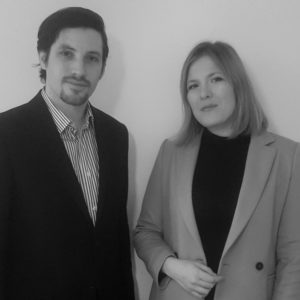

Sébastien Lachaussée & Elisa Martin-Winkel
French incentives for foreign filmmakers projects
France has been a long-standing and privileged partner for international filmmakers. It is no surprise that during international festivals and awards, French co-productions are very well represented: « Timbuktu » and « The Salt of the Earth » selected for the Oscars in 2015, « Mustang » in 2016.
Beyond traditional partners within the field of French co-production (Benelux, Germany, Canada…), it can be pointed out that there is a considerable diversity of partner countries. Thus, partnership between France and Israel are well represented and are even in the « top 8 » for the 2011-2015 period. In 2015, it can be seen that Greece, Morocco and Romania are highly represented (with 5 coproductions each) such as Lebanon (4 coproductions).
This high level of diversity embodies the growth of French partnerships with « emerging » countries in South America, Eastern Europe and Asia and is a clear indication of the French subsidies and treaties’ effectiveness. In this sense, Frédérique Bredin, president of the French cinema authority (CNC), argued, « CNC is a rallying point for filmmakers worldwide and the image of the French generosity ».
This strong position of France is mainly driven by the World Cinema Fund (WCF) , which supports both production and distribution, but also supported by specific support funds.
Main financing in France: World Cinema Fund
WCF is the privileged French fund for the production of a film directed by foreign filmmakers. It is granted to foreign feature-length film projects to be primarily distributed in theatre and supports an average of 50 projects per year. Since its creation in 2012, 250 films have benefited from WCF, 70 have been released achieving an average of 75 000 entrances.
This aid is divided in two different supports: Pre-filming subsidies and Post-filming subsidies. Each year, 4 sessions are organized, and two sub-committees who determined which films would be supported will study each project. It is to be noted that only projects rejected at the pre-filming stage may apply for post-filming subsidies.
In order to be eligible to WCF, The film must be a coproduced by a production company established in France and one that is not and must be directed by a non-French director.
The film does no require to be shot in French but may be in any language of the official or commonly-used language(s) of the foreign country of which the director is a national; or of the territory where the film is shot. Nonetheless, producers must always applied for Pre-filming subsidies before the start of any filming.
In 2015, WCF was provided with a 6 M€ annual budget. WCF support has a ceiling There of € 250,000 for pre-filming subsidy (average per film is € 120 000) and of € 50,000 for post-filming subsidy (mostly between 30 and 50 000 €). It is further provided that the support may not exceed 50% of the French financing. However, this limit is raised to 80% for a director’s first or second film, for films with a budget lower than € 1,250,000, or for coproductions with low-income countries as defined by CNC (such as notably: Algeria, Morocco and Tunisia, Chile Colombia, Peru, Mali, Senegal, South Africa… ).
After obtaining the aid, producers must comply with a certain localization of expenditures.
Regarding pre-filming subsidy, at least 50% of the granted amount must be spent in France. For the films co-produced with low-income countries an additional 25% of the aid granted must be spent in such country. Finally, films with a total budget over € 2,500,000 must meet the CNC’s approval of investments.
It should be noted here that the approval of investments is mandatory for all films produced under official co-production treaties and that approval of production is mandatory in any and all circumstances. It is therefore essential to ensure that the frame of such approval is respected during the development of the co-production. If necessary, a guarantee clause may be inserted in the coproduction agreements.
Regarding pre-filming subsidy, the post-production budget in France must at least reach 50% of the granted amount.
ACM – Distribution
Benefiting from WCF support is a real advantage to finance and distribute a foreign director’s movie. WCF’s films are very well represented in festivals and are highly renowned which ease their international selling. Mainly, since 2012 WCF provides a distribution subsidy to support and promote the distribution and international circulation of WCF films co-produced with a non-European country.
The granted amount may notably cover the technical and promotional costs, whether incurred by the producer or by its partner organizations. There is no ceiling but the amount may not exceed 50% (eventually increased to 80% for fragile or low-budget work). Nonetheless generally the amount does not exceed € 60 000 per film and 10 000 € per territory.
The catalogue of eligible films is available online for consultation, it only contains films whose at least one co-producer is established in a country which is neither a member of MEDIA nor Eurimages and with the share of the co-producer(s) established in a member country of MEDIA is between 25% and 70% for fictional and animation feature films or 20% and 70% for feature documentaries.
Application forms must include a a distribution strategy for a film or several films from the WCF catalogue in at least three countries (at least one MEDIA country excluding France and one non-MEDIA country). It is understood that In each territory, release dates must not be prior to the application deadline. Finally at least one online distribution must be planned for each film and new and innovative approaches of film distribution such as simultaneous festival screening and VOD release, direct to VoD, online festival… are encouraged.
Specific Funds:
Alongside the co-production treaties or the WCF, bilateral aid funds exist. These include notably French funds with Italy, Germany or Canada, but above all bilateral funds are opening up to more fragile countries such as Portugal or Greece. The creation of a bilateral agreement with the Maghreb countries is also under discussion.
These funds each have their specificities, but it can be said that generally they imply to we within the frame of the co-production treaties. With regard to the Franco-Greek and Franco-Portuguese funds both set up in 2014, it should be stressed out that, with view of the economic difficulties in Greece and Portugal, co-production projects initiated by a Greek or Portuguese producer benefit from special attention.
For these two subsidies, the total amount granted to a project varies between 10% and 20% of the project budget and cannot exceed 50% of such budget. In both cases the amount is capped at 500,000 euros.
A French Tax Credit difficult to obtain
Since January 2016, the French tax credit is open to films filmed mainly in France but in a foreign language in specific cases (for example for films produced in a foreign language justified by artistic reasons in the scenario), but it remains very difficult to obtain for this type of project. Indeed, it implies that the Film be realized mainly with French technicians and services under French law and fullfils the restrictive conditions (in terms of points) required by the French tax credit
The scale may sometimes be applied in flexible way according to the projects, but even if the rule is not written, it must be considered that the film must be shot in France for at least two-thirds. As a result, access to the French tax-credit is almost impossible for the films of foreign directors.
The case may be that a film would be eligible, the tax credit for films made in a foreign language due to artistic reasons in the scenario is equal to 20% of the total amount of eligible expenditures, up to a limit of 80% of the French share. The amount is capped at € 30,000,000.
International co-production projects require paying close attention to compliance with the various texts and conventions applicable to the project. Establishment of contractual relations between the parties is crucial. Therefore to secure the development and production of the projects, it may be wise to be supported by a specialist legal advice.
SHARE THIS ARTICLE
CONTACT
OUR OFFICES
INFORMATION
sl@avocatl.com
PHONE
+33.1.83.92.11.67
Address
121, boulevard de Sebastopol
75002 Paris
5th floor / Staircase A
Follow us :
Newsletter
Please enter your e-mail :
